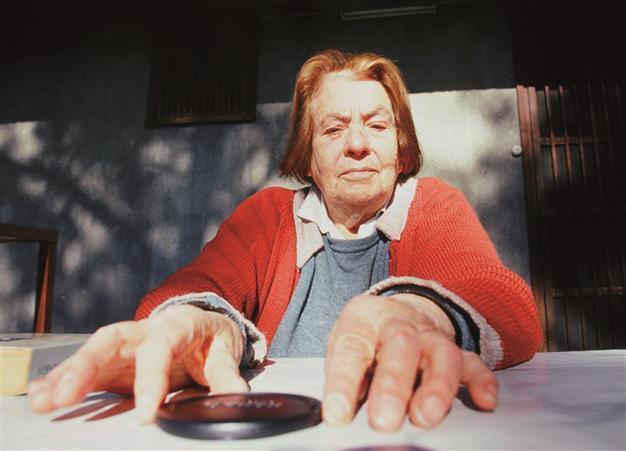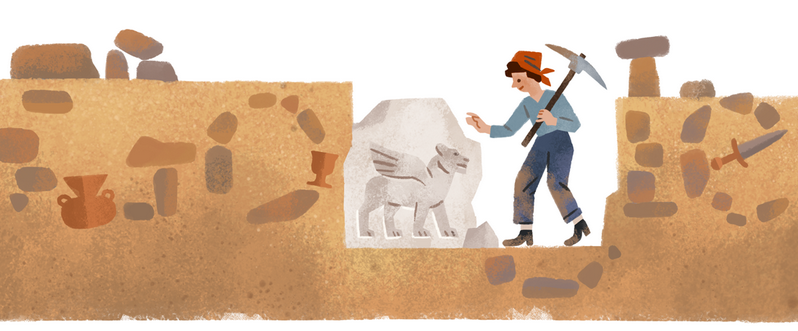Google honors Çambel on her birthday
ISTANBUL
 The doyen of Turkish archaeology, Professor Halet Çambel, who died on Jan. 12 last year aged 98, was honored by Google with a doodle for her birthday on Aug. 27.
The doyen of Turkish archaeology, Professor Halet Çambel, who died on Jan. 12 last year aged 98, was honored by Google with a doodle for her birthday on Aug. 27. 
Çambel was Istanbul University’s retired academic. She spent many years of her life in Karatepe-Arslantaş, first living in a tumulus and then in a modest two-room house. She played a key role in the understanding of Hittite hieroglyphics by discovering a tablet with the Phoenician alphabet, which allowed philologists to decipher the inscription.
Born in Berlin in 1916, Çambel received undergraduate training in archaeology at the Sorbonne University in Paris and received a doctorate in 1940 from the University of Istanbul. She competed in the women’s individual foil event at the 1936 Summer Olympics, becoming the first Muslim woman ever to compete in the Olympics. She was also a member of the German Archaeology Institute.
In Hittite history studies, initiated with the order of Mustafa Kemal Atatürk, Çambel worked in excavations at the Hittite city of Çorum-Hattusa and was a part of the team that discovered thousands of tablets in Hattusa.
After the site was discovered in 1946, it was excavated between 1947 and 1957 by a team led by Çambel and German professor Helmuth Bossert. Restoration was then carried out for many years, which included some further findings. Çambel spent much of her life in this tumulus. She played a key role in the understanding of Hittite hieroglyphics by discovering a tablet with the Phoenician alphabet, which allowed philologists to decipher the inscriptions.
The Culture and Tourism Ministry presented Çambel the Culture and Arts Grand Award in 2010. She was deemed worthy of the award along with Professor Nimet Özgüç because of her achievements in the field of archaeology and her great contributions to the science of archaeology. She received her award from former President Abdullah Gül at a ceremony in February 2011.
















